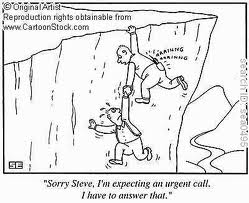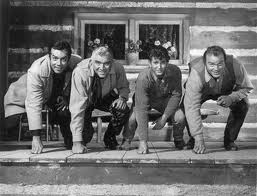Some questions sponsors ask about sponsorship
The primary purpose of a sponsor is to help you digest the Steps so that we can put down the control of the world and get a little rest.
Working the Steps is the key to your sponsee’s door of recovery and the thanksgiving table laden within the promises for a happy , joyous and free life.
They are all but suggestions, but these here are some of the best
Don’t use and forget the booze, seek out a meeting at any time, in a pinch there even some on line. The Big Book always has something new to say work the Steps to insure a firm footing. Pray away the day in gratitude and less I forget you sponsor is a phone call away. Have you helped someone along the way? In life and as well as in recovery all we have is today.
What is the difference between a temporary sponsor (interim) and a primary sponsor?
All sponsorship is temporary, it is either temporary for a day or for a lifetime or anywhere in between.
The mindset of a newcomer is fragile and the sense of a permanent committed relationship can be daunting. Temporary, (flexible and fleeting) and has the feel of impermanence and has the promise of an easy get away.
Just turn me loose,
let me straddle my old saddle
underneath the western skies.
But don’t fence me in
I explain to the newcomer that a temporary sponsor can give them their captain midnight decoder ring and show them all the secret handshakes. They can help them get through this maze of early recovery. Where to find meetings, get phone numbers and participate in program events. Introduce them around so they can feel more like being a part of instead of apart from. The temporary sponsor can explain the jargon and most importantly get them started working the Twelve Steps. If at such time the sponsorship relationship is not working, or the temporary sponsor did not sign up for the long haul they can assist in the transition to finding another temporary sponsor The sponsee and the sponsor are free to suggest a change and give the reasons why in order to help both reexamine the relationship so that they both might learn from the experience.
Do I have to go meetings for the rest of my life?
When my sponsee’s lament is this a life sentence, days without number or end of years? Is there no parole from living is there no pardon from fears?
There are two times when you should go to a meeting ,when you feel like it, and when you don’t feel like it .The program is worked one day at a time to project the rest of your life is hopefully a very long time and any future event is naturally fraught with fear and misgivings. When I first came into the rooms the thought of never drinking or using again was overwhelming. When I was able to break it down to an hour and then to a day it became manageable. So it is with meetings, I go when I want, I go when I need, and when I return home I am always more than pleased.
I have never let my schooling interfere with my education.” ~ Mark Twain
Graduation day has been postponed for the timing is not for us to know and our sobriety is just on loan with no destination known and it’s only marked by a bend in a long and winding road.
Experience has shown those who regularly attend meetings have a better chance of staying sober and continuing recovery. Let’s see going to meetings and working the Steps, or a return to active addiction is potentially death, let’s do the math.
A personal opinion in the form of a suggestion that I give to my sponsee’s, Psyche and Soma mind and body, if you go to the gym to stay toned , three days a week is suggested and for your recovery the minimal same three times a week to stay in a fit spiritual condition. There is a bonus: to watch loneliness vanish, to see a fellowship grow up about you, to have a host of friends–this is an experience not to be missed. …
How many sponsee’s are too many?
How long is a piece of string?
It depends on the sponsor’s personality, the circumstance of your life and your degree of your preferred involvement with the sponsees. It also depends on how long your sponsee has been sober, since newcomers require much more time and attention than mid-timers. Only you can decide. I had seven newcomers at one time it was stressful and counter productive I was short changing them as well as myself.
I find two or three new comers are workable for me. I can give them the sufficient individual attention necessary to have them complete the Twelve Step process in a timely yet thorough manner. I f you are an experienced sponsor there is pressure to take on more than you can handle because I have found that like in the world of commerce 20% of the people are doing 80% of the work.
Our grandiosity is easily fed by the attention of numerous sponsees
Sponsees to the right, sponsees to the left, sponsees in front of them
So we have to be careful about having too many. I have known program members who compulsively collected sponsees and moved with an entourage from meeting to meeting. There is a limit to the number of sponsees we can work with effectively. It is a disservice to them and to ourselves if we develop a sponsee addiction. Having one sponsee at a time is just as rewarding; it keeps you into action with a program that is fresh and alive. You are also becoming of maximum service to God and your fellows. To become an experienced sponsor, you have to sponsor.
How do I handle my sponsees relationships
I need all your attention and I need all of your focus; I’m not prepared to share your devotion. I need, I need, need I to know that your working only for me.
An intimate rapport of respect and admiration often accompany the sponsor sponsee relationship. A sponsee might feel that your attentions are being divided and he or she is not getting your full focus and his or her growing connection is not fully reciprocal. The suggestion is do not mention your other current sponsees; you can mention a former sponsee’s predicament and resolution so that it may help with a particular understanding or Step work.
If my sponsees figure out who their fellow sponsees are, that’s okay, but I don’t tell them.
I never take them anywhere together as a group.
I believe strongly in this separation of sponsees for several reasons:
1) It strengthens our humility. Our grandiosity is easily fed by being surrounded by an entourage of sponsees. Sponsees are not trophies of our recovery.
2) It eliminates the potential development of sibling rivalry among sponsees. It is easy for sponsees to become jealous of one another over the amount of time and attention paid to them in relation to their fellow sponsees.
3) It prevents us from intentionally or unintentionally playing favorites with our sponsees our pitting one against the other for our own selfish ends
A Suggestion: refrain from introducing someone your are working with as Your sponsee we do not take possession they are just on loan, John or Jane will suffice on the other hand if they wish to introduce you as their sponsor it is cool beans inside the program, outside the program it is a breach of personal anonymity and it is not cool.
What are the warnings signs of a slip?
To fall into fault, to slide out of place, and to lose all ability to show some restraint
Let me count the ways, some are subtle hard to perceive like a hound with an itch from a single flea, some are obvious like a cat’s tail that’s been stepped on by a rocking chair ski
When you get to know your sponsee well enough you will know when they are off the beam. You may know even before your sponsee does. One warning sign a slip does not make. For example, someone may cut back temporarily on his or her meetings for a good reason(frequent flyer miles are piling up).Or cutting back from ninety meetings in ninety days after several months in the program they are still connected ,they sponsor and depend more on working the Steps.
Nevertheless or never the more I have listed some conditions that should be discussed with a sponsee when they occur. Taken in combination they can represent a lethal dose.
Not working the Steps
Abandoning prayer and meditation
Seldom calling you, or not calling you at all
Isolating themselves, especially from program friends
Complaining that meetings don’t work anymore
Cutting down on meetings; cutting meetings out all together
Forgetting how bad it was and focusing on how good some of the old times were in their drinking, using, or compulsive days
Re associating with old drinking or using buddies
Returning to old drinking or using haunts
Note: A slip is agreed to when someone new in recovery or any time someone has not worked all Twelve steps goes back out to the world of addiction. A relapse is when all Twelve Steps had been worked and the person decides some additional experimentation is justified and has decided to return to powerlessness graduate school.
When is it appropriate for a sponsor to terminate a sponsorship relationship?
Some of us think holding on makes us strong; but sometimes it is letting go. Hermen Hesse
The termination of sponsorship is a grave matter that requires thought, prayer and consultation with your own sponsor. There are situations in which it is warranted because it serves the best interests of both you and your sponsee.
Some of the criteria that can be used to determine when a sponsorship relationship ought to be terminated
1) If the relationship is endangering your own sobriety or seriously impairing your serenity for what ever reason. Your recovery always comes first.
2) If your sponsee outgrows you, and you think that he or she would make more progress with another sponsee.
3) If your sponsee refuses to work the Steps. It is very difficult to help a member of the Fellowship who will not work the Steps. Working the Steps is the primary task of a sponsor. As working the Steps are still suggested. Discuss this dilemma with your sponsee if no resolution is agreed to suggest another sponsor but the decision is still your sponsees, move on and put your efforts into someone who wants your help. In my experience the sponsee in time will usually fire himself
4) If the sponsee cannot or will not work on being honest with you and others about his or her life. Twelve Step Fellowships are programs of honesty. A sponsee who is not open to learning honesty is difficult to help. The truth of it is that a sponsee who is not willing to get honest is not willing to enter into recovery. Honesty is more than a suggestion; it is the cornerstone that recovery is based on.
I will suggest that It might not be the right sponsor for him and I will help him to find another sponsor. If he says that he is good I minimize my investment of time and talent and stay open to when he is ready to go forward. In my experience if they are not doing the work in time they usually will fire themselves, easy breezy Japanesee. Do not be discouraged if your prospect does not respond at once. Search out another alcoholic and try again. You are sure to find someone desperate enough to accept with eagerness what you offer.The Big Book, 3rd Edition, William G. Wilson, page 96.
I make it a rule never to get involved with possessed people, actually that is more of a guideline than a rule. Bill Murray
As with other guidelines, there are exceptions, particularly with newcomers who are by nature, dishonest. It is progress not perfection that counts. If your sponsee is working hard at getting honest, that effort itself is a form of progress and honesty. If dishonesty is a major character defect of your sponsee, it should be a regular topic of discussion between the two of you, and something he or she is consciously working on.
5) Whenever anything happens that leads you to believe that the sponsorship is no longer in the best interests of your sponsee
In my experience most sponsees fire themselves when they stop working the Steps, they stop communicating, they stop returning phone calls and they disappear from the meetings if you worked with them in a timely manner in essence you have ruined their drinking and using career ,they will never drink or use again with impunity. There is nothing so tormented as a head full of A.A. and a belly full of booze.
How do I de-sponsor somebody?
Back to back we faced each other; after all we are brothers and sisters with different fathers and different mothers
By meeting your sponsee face to face and being forthright and honest why you feel terminating the sponsee /sponsor relationship is to the best interest to all concerned and why you feel that way. It is important to model honest, responsible behavior in this process
Sometimes I lie awake at night, and I ask, ‘Where have I gone wrong?’ Then a voice says to me, ‘This is going to take more than one night.
Charlie Brown
If the problem is with you (for example, if you are unable to keep a confidence), be honest about the specific problem. If amends are called for make them forthrightly at this time. Concentrate on cleaning up your side of the street, and don’t worry about your sponsee’s.
No problem is so formidable that you can’t walk away from it, and remember inside every small problem there is a large problem struggling to get out.
If the problem is with your sponsee, deal with the issues matter-of-factly. You do not have to apologize for de-sponsoring someone. It was a privilege you extended, and you have the right to withdraw it. However, you owe it to your sponsee to explain clearly why you are terminating the sponsorship. Only then can your sponsee learn from his or her mistakes and fully understand the consequences of the inappropriate behavior
What if I make a mistake?
It was when I found out I could make mistakes that I knew I was on to something. ~Ornette Coleman
When you realize you’ve made a mistake, make amends immediately. It’s easier to eat crow while it’s still warm. ~Dan Heist
Congratulations, you’re human promptly admit it in accordance with Step Ten Continued to take personal inventory and when we were wrong promptly admitted it.There is no such thing as a perfect sponsor, or sponsee for that matter. You will improve your understandings, techniques, and your sponsorship style with practice. Each sponsee is unique, and what may work for one may not work with another. How to work with a sponsee, like the horse of different color only comes with and through experience and counsel with your sponsor.
An early on a sponsee of mine was named Mike M. He had worked the Steps with another sponsor named Jack J. Mike approached me and asked if I would be his sponsor? I asked why the change? He said that he felt he needed someone that he could not B/S. I told him that I would have to speak to Jack his current sponsor before I could give him an answer. I think this is not only a common courtesy, but it is a way to obtain valuable insights into the sponsees attitudes, problems and how solid was their work to date. Jack revealed that he had seven sponsees and that Mike was as much trouble as the rest put together and he would be more than happy to pass him on. We started with Step One like my sponsor had done with me and that he would call me everyday. Mike dropped out in short order and drank so much he was incapacitated for almost a week. I would offer to pick him up and take him to the meetings but he was too immobilized. When he finally called we got together and spoke of his decline. We started again on Step One, with the agreement for him to drink again was to die. He was slowly moving along calling me everyday, he was doing his reading assignments and going to all his meetings. One Sunday night I was visiting my family in Houston he called and I opted not to take his call as I didn’t want to spoil the mood. I checked the phone recorder and everything was well with him as he was just checking in. It was 7:30 am Monday morning when I returned his call it was the very next day. He said he was doing well, he had done his reading and shared in a meeting and had procured a contract for a much needed employment. I agreed it sounded a little too neat and that we should meet the day after tomorrow. Tuesday afternoon around 2 pm I received a call from his wife she said “you have lost another one”. Those words hit me like a ton of bricks as my oldest daughter had just died a year ago. Mike had drank enough alcohol to go into anaphylactic shock and died. Mike was physically a big man and was now reduced to about the size of number 10 tin can. I didn’t sponsor for at least a year, and felt somehow responsible at least through contributory negligence for not knowing more than I should. Mikes part remains Mikes and had made his solution to alcohol addiction the grave.
How soon can I sponsor somebody?
And thirdly … the code is more what you’d call guidelines than actual rules.
Jack Sparrow
A stone not set nor concrete fixed, the suggestion is the sooner the batter will rise when you get into the mix
There are no rules about when you can sponsor somebody, and there would be exceptions if there were rules. Nevertheless, some general guidelines that are probably good for both you and your prospective sponsee are listed below. Not every program member will agree with them.
1) You have a sponsor yourself
2) You have worked at least the first five Steps (Until we had talked with complete candor of our conflicts, and had listened to someone else do the same thing, we still didn’t belong. Step Five was the answer it was the beginning of true kinship between God and man(we will be amazed before we are halfway through). Step Nine is before halfway)
3) You have read your fellowships basic text (s)
4) You Attend meetings regularly
5) You are working the Steps
6) You have had a spiritual experience or your in the process of a spiritual awakening
Some would argue that a year of continuous sobriety is necessary to secure a solid foundation strong enough to sponsor. The suggestion comes from the idea that who we are now, will not be the same person after a year of sobriety. It is also suggested not to make any sudden and life altering decisions during your first year of sobriety.
“How soon after a person has come on the AA Program can they become a sponsor?”
“I’ve heard of persons being dry one day and going on a Twelfth Step call, with excellent and enduring results for both parties.” AA Grapevine, May 1950, Vol. 6 No. 12
Furthermore, Bill W. worked his entire program with Ebby T. in less than 7 days and immediately started working with other alcoholics. Ebby T. was only 60 days sober when he carried the message to Bill W. and Dr. Bob was only 2 weeks sober when he and Bill W. carried the message to A.A. number 3, Bill D.
Moreover, these men didn’t wait around waiting to be asked by someone to sponsor them. Bill and Lois abandoned their lives with enthusiasm at the idea of working with other alcoholics. Bill W. and Dr. Bob frantically went searching for other alcoholics to work with. It’s all in the Big Book. In fact, it mentions 124 times in the first 88 pages of the 3rd edition of Alcoholics Anonymous, to work with another alcoholic.
The other argument is you must have worked all Twelve Steps. the Twelfth Step states having HAD a spiritual awakening as THE results of these Steps ,it alludes to the fact that we have already have had a spiritual awakening, not that it suddenly appears by working the twelfth Step. This again there is no hard and fast rule, I suggest to my sponsees that they are ready to start sponsoring after Step Five and the only condition is that they have to stay one Step ahead of their sponsees, you can’t give away what you don’t have. The A.A. pioneers worked the Steps right away and then passed it on right away; the question you need to ask yourself is How long can you tread water Noah?
How do I treat a high-profile sponsee such as a politician, a thespian or financial magician?
All alcoholics are created equal, but when some are more equal than others
The same way you would treat somebody who was not famous. .Alcohol is not a respecter of persons. When I sponsor a doctor a lawyer or a captain of industry I make it known from the get go, to me they are just another Bozo on the bus, of the common garden variety. In fact it is crucial that you treat your high-profile sponsee that way. One of the problems with celebrities who are trying to recover is that they are likely to receive special treatment that indulges their fantasies and their grandiosity. Celebrities are like everyone else, except they are legends in their own mind agreed in kind by many. They are just as unlikely to be ungrateful, angry, depressed on the pity pot, and self centered as the rest of us.
What they need in a sponsor is someone who will call them on their inappropriate behavior and addictive thinking. They need the same discipline and tough love as everybody else in the program.
Losing my anonymity in this world I think is something that I find terrifying almost as much as not being recognized at all
The problem with losing your anonymity is that you can never go back. Marla Maples
When dealing with a high-profile sponsee, always protect his or her anonymity
Never break it anyone under any circumstance. It is nobody’s business inside the program or out side the program whom you sponsor. You have no right to tell anyone that you are sponsoring a famous person; much less tell anything that the person has told you. If you are not capable of keeping your famous sponsee’s identity completely Confidential, then you should refuse to sponsor that person. Not being able to brag about your sponsee is the price you pay for sponsoring him or her.
There is nothing so common as the wish to be remarkable. William Shakespeare
Successful people are always looking for opportunities to help others. Unsuccessful people are always asking, “What’s in it for me? Brian Tracy
One of the requirements for sponsoring a high-profile people is being willing not to take advantage of them. If you cannot resist the temptation to ask them to help you sell a movie script, find a job, influence a piece of legislation, get you a coveted ticket, and arrange an invitation to a party, set up an introduction, get their dealers phone number or gain access to their face book and twitter account, and so on, you have no business sponsoring them. It is a betrayal of the sponsorship relationship to ask high-profile sponsee or any sponsees for that matter any thing other than to work their programs to the best of their abilities. In the case of a high-profile sponsee there is a greater temptation to try and take advantage. Let’s face it; they have that much more to offer.
Should I offer to sponsor someone?
True offering involves both thanksgiving and a leap of faith
The primary purpose of a sponsor is to help you digest the Steps so that we can put down the control of the world and get a little rest. Working the Steps is the key to your sponsee’s door of recovery and the thanksgiving table laden within the promises of a happy, joyous and free life.
The Jumping frog of Calaveras County overcomes buck shot in the rump and takes a leap of faith
Absolutely, sometimes it takes getting out of your comfort zone. When a newcomer gets their beginners chip it is time to strike when the iron is hot and before they settle into cool complacency. Some would disagree that it’s attraction not promotion.
The tradition states In PUBLIC press radio and films. In the rooms of recovery we promote, we promote the Steps and a solution to the disease of mind body and spirit. If you did not share in the meeting how would they know you would be a good sponsor, by sense of smell?
There are situations when a connection is made, a spiritual connection that just seems to come together and it works, and it works well, such connections are not to be discounted.
The pioneers went out to the hospital and to skid row searching for prospects, they were promoting a new design for living, they knew in order to keep it they had to give it away .When the newcomer come through the doors of recovery they present a golden opportunity to gain immunity from alcohol and addiction, while invigorating your own program, and being of maximum service to God and our fellow beings.
Once you have asked the prospect if they have had enough and If they are willing to go to any lengths to achieve sobriety I then tell them that they can get well from this disease of mind body and spirit, but there are certain things they have to do and the first thing they have to do is to answer Clancy’s seven questions and I need it done and back by tomorrow. You will receive them back or you won’t, if you don’t, move on, they are not ready or not ready for you. If you do get it back they have taken simple instruction and they are into action.
A discussion of mutual expectations can be engaged in at this time and the agreement of temporary sponsor status can also be discussed at this time. This offer can be a great blessing for newcomers who haven’t mustered enough courage to ask someone to sponsor them and have started to languish in the rooms counting only on the meetings to stay sober and not on working the Steps with a sponsor to achieve long term recovery.
With whom can I discuss my sponsees problems?
Sorry to say it’s like talking to a wall”
If you can’t get people to listen to you any other way, tell them it’s confidential
Only with his or her grand sponsor (i.e., with your sponsor) Even then it’s suggested to get their permission. The confidentiality that you must maintain between you and your sponsee prohibits you from talking about your sponsees problem with anyone else inside or outside the program. The only exception would be if your sponsee is in a life threatening situation i.e. threats of suicide, homicide and especially sponsorcide
Is it okay to assign readings to a sponsee for discussion?
Those who do not read are no better off than those who cannot.
“Be careful about reading health books. You may die of a misprint.” Mark Twain
Yes. In fact, it’s good idea to give reading assignments to your sponsee. Be aware of illiteracy some unfortunately have not learned to read they too can get well but there are certain things you as well as your sponsee have to do. Audio recordings of the Big Book and Twelve and Twelve and other program literature are available. It is suggested to read to your sponsee as they read the same selection as the retention rate goes up to 70%. Assignments in the Big Book or equivalent and in other program related literature can familiarize your sponsee with the program and provide specific topic for the two of you to discuss. Making an assignment has the added advantage of getting you to do the reading yourself.
Is it okay to give sponsees assignments other than reading
Good morning, Mr. Phelps, Your assignment, should you choose to accept it is a mission that is more than possible and necessary for a happy joyous and free life
It is, in my opinion, if the assignment is offered in the following way. I tell my sponsee that I want to give him an assignment because I believe that it will help him in his recovery. I explain what the assignment is and why I think it will help. I ask if he is willing to accept the assignment. . If he is not, I ask why not, but then I let it go. If he accepts the assignment, I ask him to make a commitment to keep it. If he does not keep it, we discuss why he hasn’t. The advantage of this approach is that it keeps me from telling my sponsees what to do.
Great ability develops and reveals itself increasingly with every new assignment.
Never refuse an assignment except when there is a conflict of interest, sloth, lethargy, complacency, reruns of Bonanza
Some assignments might include, being of service anonymously in an out of the program. Chairing meetings at the local V.A. or chairing meetings at the local mental health facilities. Suggest they take the Twelve Step message of hope and recovery to the prisons and to the jails. Suggest cleaning their home group facility, setting up the chairs making coffee, cleaning cigarette ash trays (the good old days) and volunteering to be a meeting greeter. Make themselves available for Twelve Step calls. Suggest manning the intergroup phones to give directions and reassurance to someone who finds themselves desperate and alone. The list is endless with a little imagination prayer and consultation with your own sponsor.
Most of the time, the assignments I give sponsees are for a fixed terms, and they are designed to illustrate some character defect or to help him practice a Twelve Step principle or new behavior.




















Latest Comments